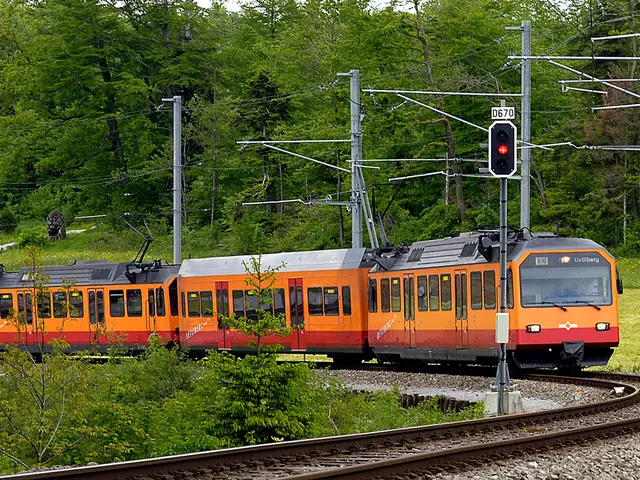Most German municipalities lack public electric vehicle charging stations
In a recent interview with the Rheinische Post, Dietmar Bartsch, a Left Party MP, sharply criticised the lack of publicly accessible charging infrastructure for electric vehicles in Germany, describing it as 'a shameful failure of the transport transition'.
According to the Federal Ministry of Transport, only 4,923 out of 10,978 German municipalities have publicly accessible charging infrastructure for electric vehicles. This means that nearly 45 percent of all German municipalities do not have charging points for electric vehicles.
The poorest performance in terms of publicly accessible charging infrastructure is reported in Rhineland-Palatinate, where only about 26.5 percent of municipalities have such infrastructure. This represents the region with the lowest coverage of public EV charging points among German states. In contrast, Berlin, Hamburg, Bremen, the Saarland, and North Rhine-Westphalia all report comprehensive coverage with charging points, each with 100 percent coverage.
Bartsch attributed the poor performance of the German automotive industry to the neglected infrastructure for electric mobility. He stated that up to three-quarters of municipalities in federal states lack charging points, which he believes results in rural areas being unacceptably disadvantaged.
The spending of 9.5 billion euros on promoting electric cars since the start of state funding, up to the end of July, does not seem to have significantly improved the infrastructure for electric mobility in rural areas. Bartsch emphasised that comprehensive good charging infrastructure is crucial for a successful switch to electric mobility, alongside vehicle price and range.
The Federal Ministry did not provide specific data about the number of charging points in rural areas, but earlier it was reported that nearly 45 percent of all German municipalities lack publicly accessible charging points for electric vehicles. Bartsch's criticism suggests that the infrastructure for electric mobility in rural areas is inadequate compared to urban areas.
Out of the total German municipalities, 98 percent of those with more than 5,000 inhabitants have at least one public charging point. However, this leaves a significant number of smaller municipalities without adequate charging infrastructure.
Bartsch's criticism is a call for action to address the issue of inadequate infrastructure in rural areas and ensure a fair transition to electric mobility for all regions of Germany.
Read also:
- projected growth for the natural acetoin market: $291.6 million by 2034
- Latest Edition of Bus-News Magazine Arrives for 2023!
- Testing the Camp Mode of the 2025 Tesla Model Y with Juniper's interior housing two kids, shockingly low CO2 levels were discovered.
- Demonstrating Carbon Storage in Agricultural Forestry through Digital Monitoring and Verification








